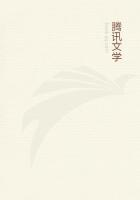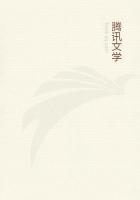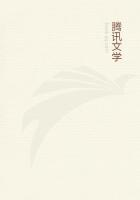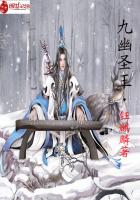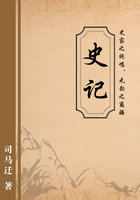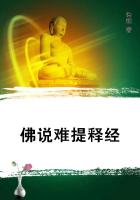The Germans, the last race to enter Europe, had not yet increased in numbers sufficiently to require any large portion oftheir support from the rude labour demanded for tillage and harvest. Except under the pressure of necessity, man neverdevotes himself to long and arduous labour.
Certain German writers have maintained that the Germans, in the time of Tacitus, practised the triennial rotation of crops,reserving a third part of the arable land for winter grain, and another third for summer grain, while the remaining third layfallow. M. Roscher has proved this opinion to be erroneous. (2) Agriculture, at this period, was on the contrary in the highestdegree "extensive." The phrase of Tacitus describes this method of cultivation very faithfully, nec enim cum ubertate etamptitudine soli labors contendunt , "they do not attempt by their labour to vie with the fertility and extent of the soil."Caesar before him had remarked that the Germans applied themselves very little to agriculture, agriculturae minime student ,and that they never cultivated the same land two years together. The magistrates, who annually allot to the several familiesthe share which comes to them, make them pass from one part of the territory to another. Tacitus tells us the same thing: Arva per annos mutant et superest ager , they cultivate fresh lands each year, and there always remains a portion undisposedof.
To understand these passages, often incorrectly translated, we must take into consideration an agricultural practice, still mforce in our day, in certain villages possessing large tracts of common land, as in the Ardennes in Belgium. Part of the heathis divided among the inhabitants, who obtain from it a crop of rye by the process of " essartage " or " écobuage ." (3) Thefollowing year, another part of the common land is parcelled out and cultivated in the same manner. The portion so workedis afterwards abandoned to the natural vegetation; and it becomes common pasture again for eighteen or twenty years, afterwhich period it is again subjected to "essartage." Suppose the population so small as to allow of the annual allotment of ahectare (4) (about 2?acres) to each inhabitant, and the village will be able to subsist by means of this primitive method ofcultivation, which was exactly that of the Germans. It will not be necessary to manure the soil or to expend capital on it; itsextent will serve instead; spatia praestant , as Tacitus says. In the southern parts of Siberia, the land is cultivated in this way.
Barbarous as it may appear, it is the most rational and economical method of cultivation, for it is the one which yields thelargest net profit. So long as space suffices, there can be no object in concentrating capital and labour on a small surface. Itis the rule, that a second application of capital to the soil produces relatively smaller profit than the first. It is only density ofpopulation that can render "intensive" cultivation necessary or profitable. Under a system of temporary cultivation, wherethe same land is only tilled once in twenty years, and which occupies different portions of the territory in succession, theannual partition of the soil is obviously a natural, and almost a necessary, result. The labours of cultivation are so ****** thatthis redivision can work no manner of harm to. any one. The mode of tenure is in accordance with the mode of cultivation.
The Germans cultivated, for the most part, the cereal which occupies the soil for the shortest time, and is best suited tonewly cleared lands, namely oats. As it is sufficient to sow it in spring, it escapes the severity of the winter, and was, there-fore, especially suitable to the severe climate of Germany. Pliny tells us that the tribes of this country lived exclusively onoatmeal, which was also formerly the principal food of the Scotch, and is so at the present time in the Highlands. TheGermans also cultivated summer barley, to make a fermented liquor, Tacitus tells us, somewhat resembling wine, that is tosay, beer. The observation of Pliny is correct as regards the cereals grown by them; but they looked to animal food for thegreatest part of their sustenance. "They eat wild fruit, game and curds," says Tacitus: while Caesar tells us "They live for themost part on milk, cheese and flesh." Agriculturae non student, major que pars victus corum in lacte, caseo et cameconsistit . (5) They were, therefore, still hunters and shepherds rather than agriculturalists. Their numerous herds, ill-fed and ofpoor quality, constituted their chief wealth.
For the chase, they had the depths of the common forest, where, besides the stag and deer, there was then abundance oflarger animals, since disappeared, the reindeer, the elk, and the wild ox: while for the maintenance of their cattle they trustedto the common pasturage, which consisted of permanent meadows in the valleys, and of waste or fallow land, eighteen ornineteen times as extensive as the land under temporary cultivation. Not only was all the territory the undivided property ofthe clan, but their collective enjoyment extended over nearly the whole of it. Only a small portion was subject to privateoccupation for a year. The tenure characteristic of the pastoral system still embraced almost the whole land. Hereditaryownership was only applicable to the house and enclosure belonging to it, as in Java or Russia. Suam quisque domum spatiocircumdat , says Tacitus. This was the salic soil, terra salica , (6) which was transmitted by succession to male children andrelations, but could not be inherited by females. The inclosure, surrounded by a quickset hedge, could not be entered by anyone without the consent of its owner. In this sacred domain he was sovereign. In his own house, as our proverb says, everyone is king.


